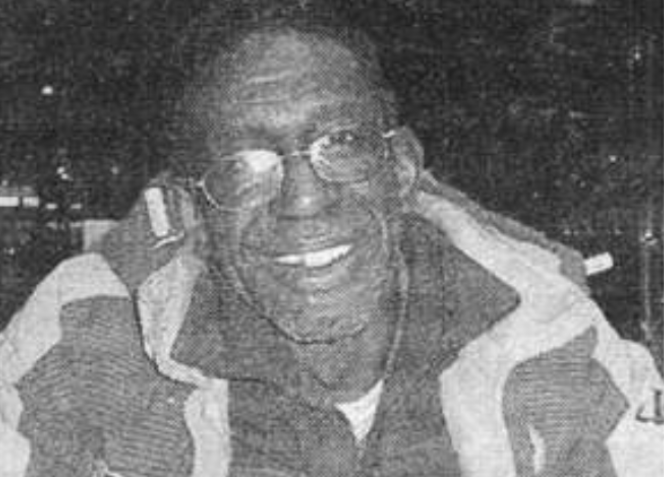“In spite of all the ups and downs and things I’ve done to myself,” Moses Scott says, “I’ve had a beautiful life. I don’t think I would change anything about it.” Scott grew up in the District in the 1950s and 1960s, raised in a tight knit family. Scott remembers watching for his father to return from work, running up the street to greet him, and spending the evening watching television on his lap.
Six days after Scott’s eighth birthday, his father passes away. “I was really not equipped to handle it,” Scott recalls. He became disruptive and began running away from home. By the time he was 14, he had been incarcerated seven times. But the age 16, Scott had been introduced to marijuana, heroin, and crack cocaine, And, moreover, “I was a teenage alcoholic and didn’t know it,” Scott said.
Wanting to do something with his life, Scott joined the Army in 1973. Home on his first leave from Ft. Dix, Texas, Scott witnessed a friend commit murder. Frightened, he went AWOL, remaining in D.C. until his family convinced him to return to the military to clear his name. But in the stockade in Virginia, Scott was arrested for first degree murder. He spent fifteen months in jail, had a nervous breakdown, and was transferred to the Trenton State Psychiatric Hospital in New Jersey. “It was a nightmare,” Scott said. He was eventually cleared of the charges, release, and returned to duty. Only a few months later, however, a military psychologist found him mentally incompetent to perform his duties and he was discharged.
Scott worked as a liquor store clerk for three years, then for the GSA at the Pentagon. Leaving the liquor store did little to distance Scott from his addictions. The security at the Pentagon, said Scott, “is nothing like the security they have today. There were bootleggers, drug dealers, loan sharks and number runners – and I had credit with all of them.” In the eight and a half years that Scott worked for the federal government, he was in and out of apartments, relying on his youngest sister when he couldn’t pay rent. In 1986, she finally decided that she could no longer be his enabler. “I thought she was the meanest woman ever,” Scott said. “I would never talk to her again”.
For the next thirteen years, Scott lived on the streets of Washington, D.C. “I didn’t like the shelters,” he said, “because the first one I learned about was Randall, where I went to school. The shelter was in the gym, and if felt like a penitentiary. There were always homosexual men dressing up like women, and they would share what we called a king-sized cot. I was just not ready for that.” Instead, Scott saved a few hundred dollars and bought a car to serve as both transportation and shelter.
Temp agencies provided work and paid him cash. At the end of the day, Scott spent his wages on alcohol and drugs. Scott remembers sleeping on a grate by the Justice Department until about midnight, then catching the last train to Van Dorn. From there, he would walk the ten miles to Springfield, arriving just in time to begin his work day. “People always think homeless people are lazy, they don’t work, ” Scott said. “In the thirteen years I was homeless, I always worked. At one time, I had three jobs”.
Over the course of six years, Scott tried three times to go into recovery. The first was in 1993 when he met Jim Street, an outreach worker for homeless veterans. Scott entered a program run by Catholic Charities but couldn’t make it through. In 1996, Street convinced him to go to Martinsburg, West Virginia, and enter a program there. Scott fell in love with the area, began working, and moved into his own apartment. “For the first time,” Scott said, “my family was really proud of me”. But that wasn’t enough to make Scott give up drugs and drinking, and in 1998 he lost his apartment and returned to D.C.
Scott had stopped using cocaine but was drinking a case of beer a day. He found employment with a waste management company, spending 12 to 16 hours a day on the back of a trash truck. Injured on the job, he took time off work and his brother introduced him to Don Melvin at a gospel rescue mission. Scott entered the mission’s program on September 28, 1999 and hasn’t had a drink or a drug since. He found a sponsor at Alcoholics Anonymous, and in January 2000, he left the mission and moved to a rooming house. There, he found himself back in an environment of drugs and alcohol – yet during his four-month stay, he was able to stay away from them. “That was when I knew I was really done”. A year later, Scott acquired a Section 8 certification and moved to the apartment where he lives today.
Scott now works with the National Coalition for the Homeless as a part of their Speakers Bureau and is very close to his youngest daughter and grandchild. He points out that coffee is his only addiction. I may not have everything I want,” Scott said, “but for the first time in my life, I have me, and I’m at peace with myself”. And the sister who he was never going to speak to again? Said Scott, “She’s my best friend.”








